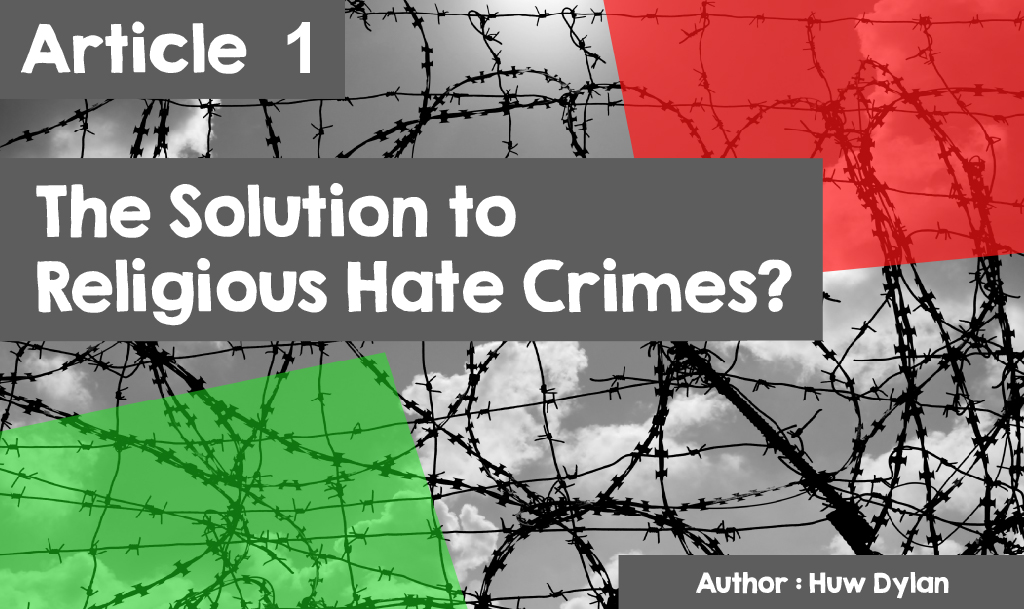|
THE SOLUTION TO RELIGIOUS HATE CRIME?
There is tension in many religions between offering criminals' forgiveness or punishment. Christianity is a religion of forgiveness that teaches that since God forgives people, believers should act in a similar way and forgive others. Yet, some Christians would emphasise the need for justice and that this means punishment. They would say that punishment and forgiveness can be mutually exclusive.
|
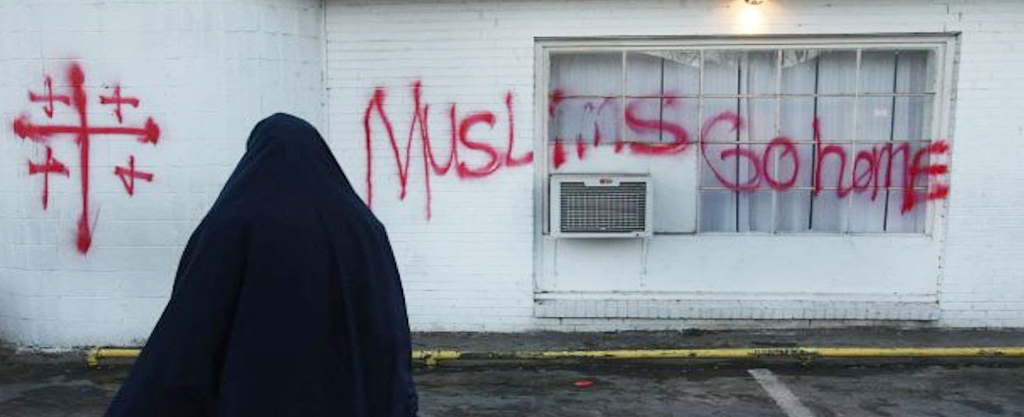
|
|
These crimes can occur in a variety of ways - verbal and physical abuse; bullying; threatening behaviour; online abuse or property damage. It can be one specific event or a regular series of events. And the offender can be anybody - someone you don't know, a neighbour, a teacher or even someone you considered a friend.
|
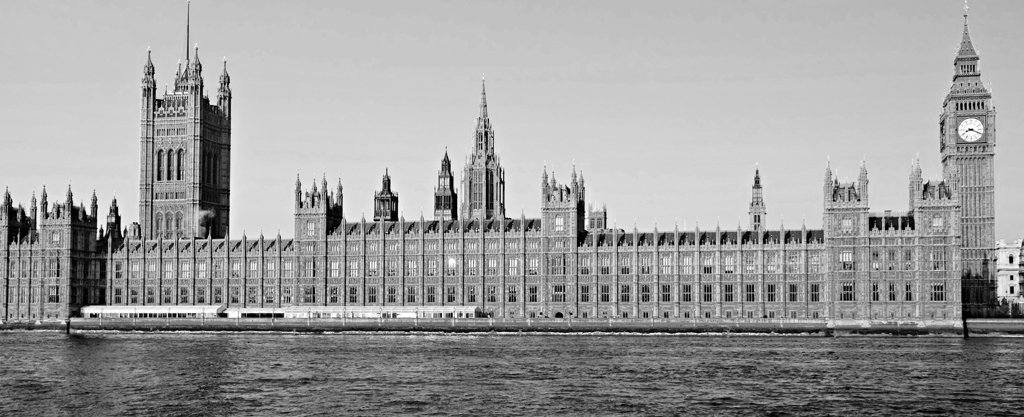
|
|
Therefore, religious groups have taken the lead and tried to act in different ways to try to bring different communities closer together in the hope that a better understanding of each other's beliefs and practices will lead to less prejudice and hatred. They encourage goodwill towards people of different faith communities, which means respecting the freedom of people within the law to express their beliefs; respect the conviction of others regarding food and dress; work to avoid misunderstandings turning into conflicts and always avoid violence. When discussing faith issues, one must do this honestly and realise that listening as well as speaking are necessary for a sensible dialogue. Leaders of the different religions believe that the different religions have more similarities than differences in common, especially in terms of values such as love, compassion, respect, and fairness.
|
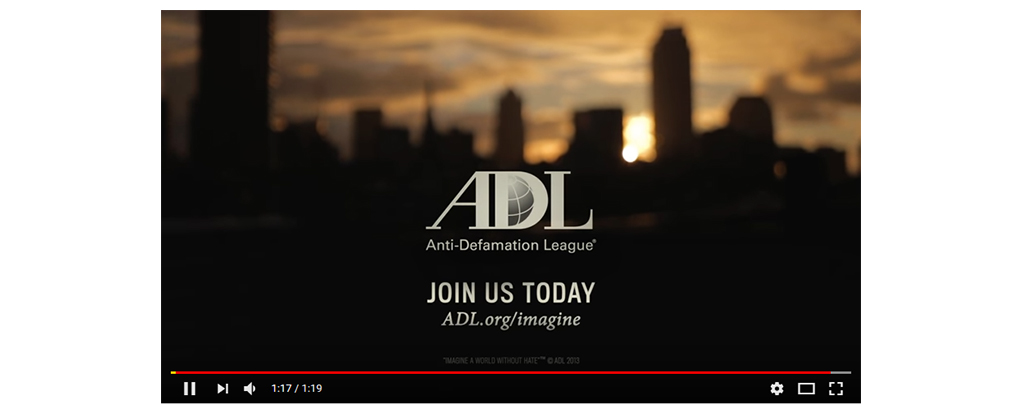
|
|
Leaders of the different religions do not deceive themselves that living side by side is easy. Religion contains deep emotions that can be destructive at times and so to prevent that happening, faith must be strong enough to promote reconciliation and understanding. There's a famous story about a man talking to his grandson and telling him - 'There's a big fight going on inside me - a battle between two wolves. One is evil, and represents hatred, greed, and intolerance. The other is good and represents joy, peace, love, humility, kindness, generosity, and compassion. This fight is happening inside you, too, and inside every person.” The grandson then asked, “which wolf is going to win?” The old man replied, 'The one you feed.'
|
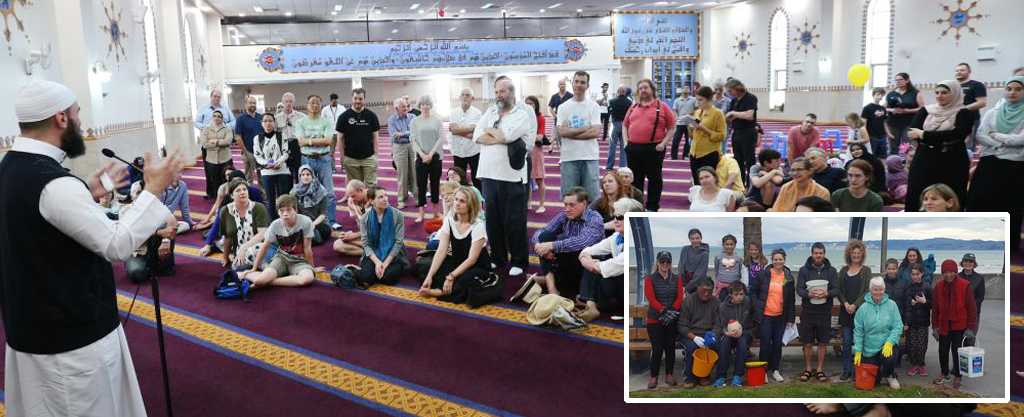
|
|
One such flagship project in Wales is the Peace Mala. It is an educational project to promote peace initiated by Pam Evans, former Head of Religious Education at Ysgol Gyfun Coedcae in Llanelli. It was established in 2001 in response to the racial and religious bullying emanating from Islamophobia following the 9/11 attacks. Using a symbolic double rainbow bracelet focusing on the 'Golden Rule' found in different religions – ‘do to others what you would have them do to you’, the project encourages inter-religious dialogue to ensure global citizenship and peace. It encourages friendship and respect between people of all cultures, lifestyles, and religions. It is a vision for the future. Wearing the 'Peace Mala' is a promise to create a better world. |

|
|
The Religious Education Council for England and Wales has set up Young Ambassador groups to try to improve public understanding of Religious Education. Young people of different faiths come together to promote a subject that they believe is important to build positive community relations and inter-religious understanding. The council celebrates diversity and believes that Religious Education provides people with information that enables them to challenge prejudice and stereotyping. |
